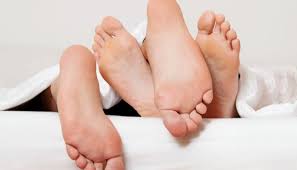Distressed Desire

After the publication of my book, A Woman’s Guide to Hormone Health, I had the opportunity to speak around the country to audiences of women about some very “feminine” subjects. I was in San Diego speaking to a group called The Red Hot Mammas (sort of a cross between a menopause support group and a motorcycle gang) and during the question and answer session a grandmotherly octogenarian sheepishly raised her hand and asked, “Doc, my sex drive has driven off and I don’t have a map! What do I do?” I heard an audible “thank goodness” from several other folks in the audience as they wanted to ask the same question but didn’t have the courage of my blue haired inquisitor. Over the ensuing years I don’t think I have ever hosted a forum where this topic didn’t raise its libidinous head.
Next to questions about losing weight, a declining or absent sex drive is one of the top complaints heard in gynecologist’s offices nationwide. A recent report from the National Institutes of Health states that 43% of women will experience some form of sexual dysfunction at sometime in their life. A majority of these problems, especially in perimenopausal and menopausal women, is a lack of desire. Loss of libido is defined by the Diagnostic and Statistic Manual (the book doctors use to categorize diseases) as “persistently low sexual desire resulting in distress or relationship dysfunction, where lack of desire is not due to another condition or circumstance.” There are two important parts of this definition that are cogent to understanding the causes and treatments of this problem. First, the lack of desire must cause a problem either in the person’s psyche or in their relationships. So, for example, a woman with a low desire who is purposefully abstinent may not view that lack of desire as bothersome. Secondly, the low libido should not be due to a physical problem or medication. A common example of this in the menopause is the woman who experiences pain with intercourse due to vaginal changes in lubrication. It only makes sense that if it hurts, consciously or unconsciously, you are going to avoid intimacy like Republicans avoid taxes. Also various medications can have libido squashing side effects. For example, many of the anti depressants such as Prozac and Zoloft can flatten libido like a steamroller on asphalt.
The causes of a low or non-existent sex drive are legion, but they can generally be divided into four categories: physical, psychological, relationship, and hormonal.
Physical reasons include many nonsexual diseases such as arthritis, cancer, diabetes, high blood pressure, coronary artery disease and neurological diseases. Think of poor sex drive as side effects of these disease processes, and often once the physical malady is remedied, the libido returns. In addition, a glass of wine may make you feel amorous, but too much alcohol can spoil your sex drive. Any surgery related to your breasts or your genital tract can affect your body image, sexual function, and desire for sex. A huge secondary cause is fatigue. The exhaustion of caring for aging parents or young children can contribute to low sex drive.
I already alluded to the role of hormones, and any major hormonal shift such as menopause, pregnancy, and breast feeding can affect desire.
There are many psychological causes of low sex drive such as anxiety, depression, poor body image, low self-esteem, and a history of physical or sexual abuse. One of the most overlooked but common causes of poor libido is stress. This can be stress related to work, finances, kids, or just life.
We all know that much of a satisfying sex life originates as much above the neck as it does below the waist; therefore, relationship issues are huge in dissecting libido malfunction. For many women, emotional closeness is an essential prelude to sexual intimacy. If you are having problems between the sheets, don’t pull the covers over your eyes!
So what can be done about this tsunami of libido lack? Obviously if there is an underlying issue, such as medications or hormone problems, they must be addressed first and often sex drive creeps back. If stress and relationship issues are paramount then talking with a counselor skilled in addressing sexual concerns can help with low libido. Therapy often includes education about sexual response, techniques, recommendations for reading materials, and couples exercises.
In women suffering from painful intercourse, vaginal estrogen may markedly improve vaginal elasticity, lubrication, and response. Testosterone, present in females at a much lower concentration than males, has a libido enhancing effect for women; however, testosterone supplementation is controversial and should be closely regulated by a knowledgeable clinician.
It is critical to remember that libido can’t be separated from the context of a relationship. Couples who learn to communicate in an open, honest way usually maintain a stronger emotional connection, which can lead to better sex.
